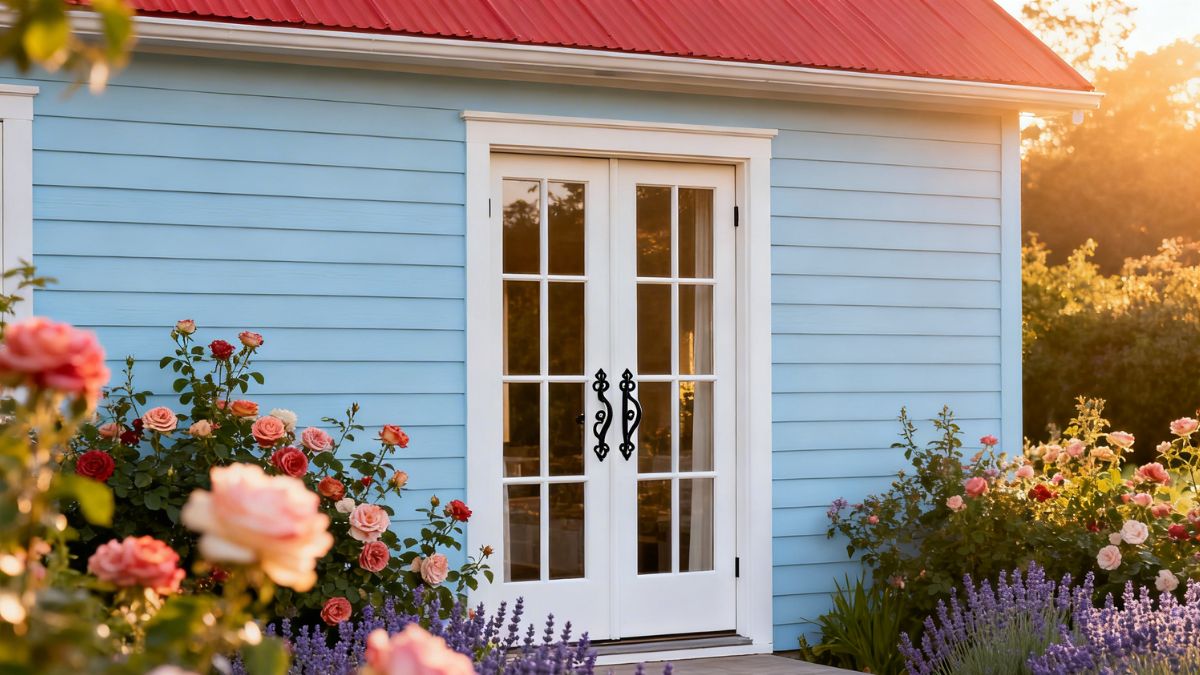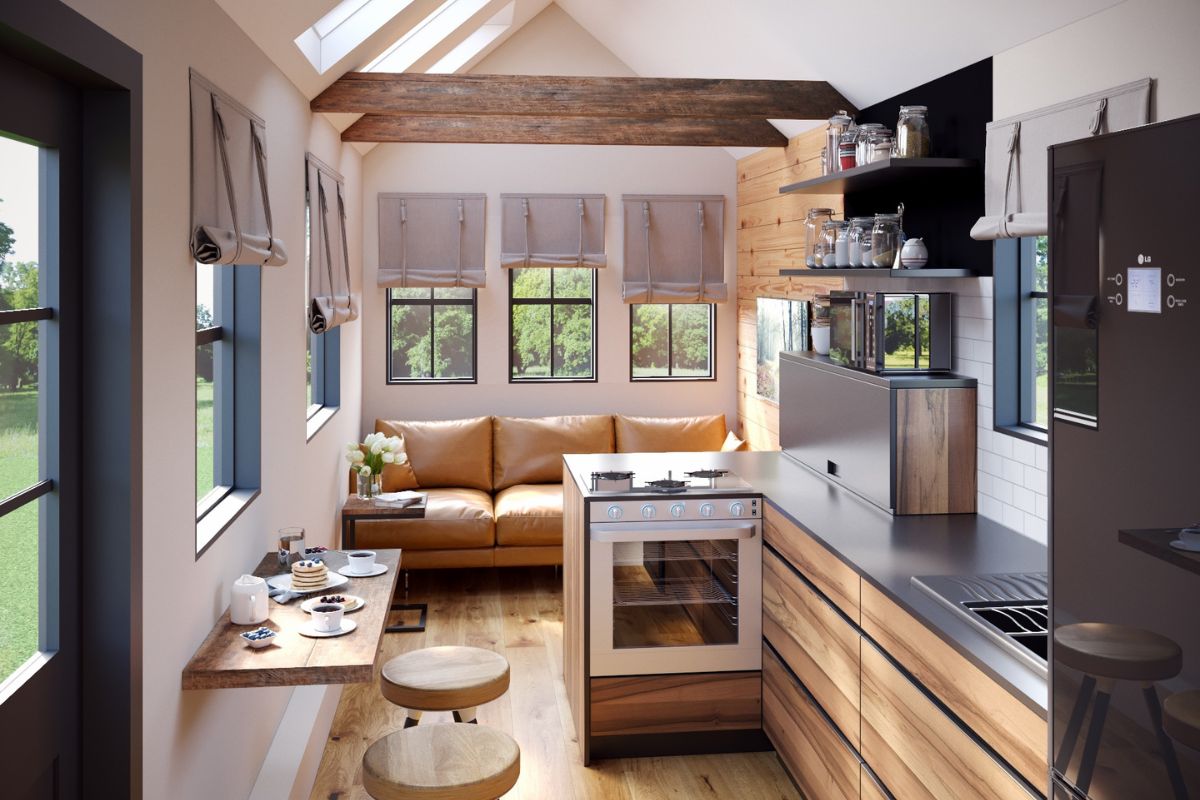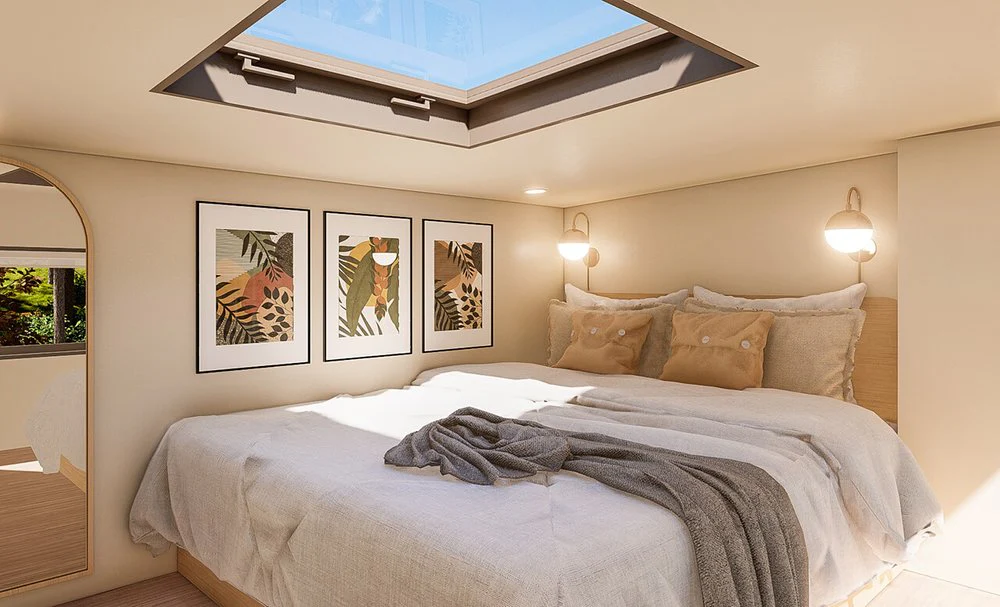10 Benefits of Off-Grid Living and Interesting FAQs
.jpg)
Image Source: Canva
Living off-grid, once considered an unconventional way of life choice, has picked up expanding notoriety in later a long time. This elective way of life offers various benefits that offer to those looking for autonomy, maintainability, and a more profound association with nature.
From decreasing natural affect to cultivating self-sufficiency, the focal points of off-grid living are compelling. Let's investigate ten key benefits that make grasping off-grid living an alluring proposition.
1. Feasible Living
Off-grid living essentially decreases dependence on conventional vitality sources such as fossil powers. By tackling renewable vitality like sun based, wind, or hydroelectric control, off-grid tenants minimize their carbon impression and contribute to natural preservation. This maintainable approach adjusts with the worldwide basic to combat climate alter and advance eco-friendly practices.
2. Budgetary Freedom
Escaping the cycle of utility bills and contract installments, off-grid living offers monetary freedom. Whereas beginning setup costs for elective vitality frameworks and maintainable foundation may be higher, the long-term investment funds are considerable. For example, the cost of 10kW solar system, though initially significant, pays off substantially in the long run. With decreased or disposed of utility costs, off-grid people can distribute reserves towards other needs, such as instruction, travel, or investments.
3. Self-Sufficiency
Off-grid living cultivates self-reliance and autonomy. By creating their claim vitality, developing nourishment, and overseeing assets, people pick up profitable abilities and information that enable them to flourish without outside back. This self-sufficiency improves strength in the confront of financial variances, common calamities, or societal disruptions.
4. Association with Nature
Living off-grid offers a more profound association with the characteristic world. Absent from the commotion and diversions of urban life, off-grid tenants involvement tranquility and tranquility in the midst of perfect scenes. Whether it's observing the dawn over rough mountains or stargazing beneath a clear night sky, nature gets to be an indispensably portion of day by day life, supporting the soul and cultivating a sense of belonging.
5. Decreased Natural Impact
Off-grid living minimizes natural affect by grasping economical hones. With decentralized vitality generation and dependable asset administration, off-grid communities moderate contamination, environment pulverization, and exhaustion of characteristic assets. By living softly on the arrive, off-grid people play a imperative part in protecting biodiversity and defending delicate ecosystems.
6. Wellbeing and Well-being
The wellbeing benefits of off-grid living are complex. Cleaner discuss, get to to natural nourishment, and openings for open air exercises advance physical well-being. Additionally, the diminished stretch and improved mental clarity that come with a less difficult way of life contribute to by and large mental wellbeing. Off-grid living energizes mindfulness, imagination, and a adjusted approach to life, driving to more prominent bliss and fulfillment.
7. Inventive Freedom
Off-grid living empowers inventiveness and advancement in economical plan and way of life choices. From eco-friendly design to off-grid contraptions and innovations, people are motivated to discover innovative arrangements to regular challenges. This imaginative opportunity cultivates a culture of experimentation and collaboration, driving advance towards more proficient and strong off-grid living systems.
8. Community Building
Off-grid living develops solid bonds inside communities joined together by shared values and objectives. Whether it's collaborating on renewable vitality ventures, exchanging homegrown create, or partaking in communal exercises, off-grid communities flourish on shared back and participation. This sense of having a place and camaraderie cultivates social strength and improves the quality of life for all members.
9. Individual Growth
Off-grid living gives openings for individual development and self-discovery. Absent from the diversions of customer culture, people have the time and space to reflect on their values, yearnings, and needs. This contemplation regularly leads to a more profound understanding of oneself and one's put in the world, cultivating individual improvement and otherworldly fulfillment.
10. Natural Stewardship
Off-grid living ingrains a sense of natural stewardship and obligation towards future eras. By living in agreement with nature and minimizing biological affect, off-grid people set an case for feasible living hones. This commitment to natural preservation expands past individual way of life choices, rousing others to grasp eco-conscious behaviors and work towards a more feasible future.

Frequently Asked Questions About Off-Grid Living
Living off-grid, detached from conventional utilities and grasping self-sufficiency, is an interesting way of life choice for numerous. Underneath are a few common questions individuals have around off-grid living, along with instructive answers to offer assistance demystify this elective way of life.
1. What precisely does "off-grid" living mean?
Off-grid living alludes to dwelling in a area that is not associated to open utilities such as power, water, or sewer frameworks. Instep, off-grid people regularly produce their claim control, collect and decontaminate water, and oversee squander independently.
2. Is off-grid living legal?
Yes, off-grid living is lawful in numerous ranges, but it's basic to investigate neighborhood controls and zoning laws some time recently setting out on this way of life. A few districts have particular prerequisites with respect to building codes, squander transfer, and arrive utilize, which may affect your capacity to live off-grid.
3. How do off-grid tenants produce electricity?
Off-grid people regularly produce power utilizing renewable vitality sources such as sun powered boards, wind turbines, or hydroelectric frameworks. These frameworks capture vitality from the sun, wind, or streaming water and change over it into usable power put away in batteries for afterward use.
4. Can I still have advanced conveniences whereas living off-grid?
Yes, it's conceivable to appreciate cutting edge civilities such as web get to, refrigeration, and excitement frameworks whereas living off-grid. Be that as it may, off-grid people may require to adjust or alter these comforts to work proficiently with renewable vitality sources.
5. How do off-grid communities handle water and sewage?
Off-grid communities oversee water and sewage through different strategies, counting water gathering, well water extraction, composting toilets, and septic frameworks. These frameworks permit off-grid tenants to collect, treat, and reuse water whereas minimizing natural affect.
6. Is off-grid living naturally friendly?
Off-grid living can be ecologically neighborly when practiced reasonably. By diminishing dependence on fossil fills, minimizing squander, and moderating characteristic assets, off-grid people contribute to natural preservation and supportability endeavors.
Conclusion
Off-grid living offers a huge number of benefits that rise above insignificant way of life choices. From natural maintainability to individual opportunity and community versatility, the focal points of off-grid living are significant and far-reaching.
As society hooks with squeezing challenges such as climate alter and asset consumption, the standards of off-grid living serve as a signal of trust and motivation for a more concordant and feasible way of life. Whether by choice or need, grasping off-grid living is a step towards a brighter and more strong future for all.







.jpg)

